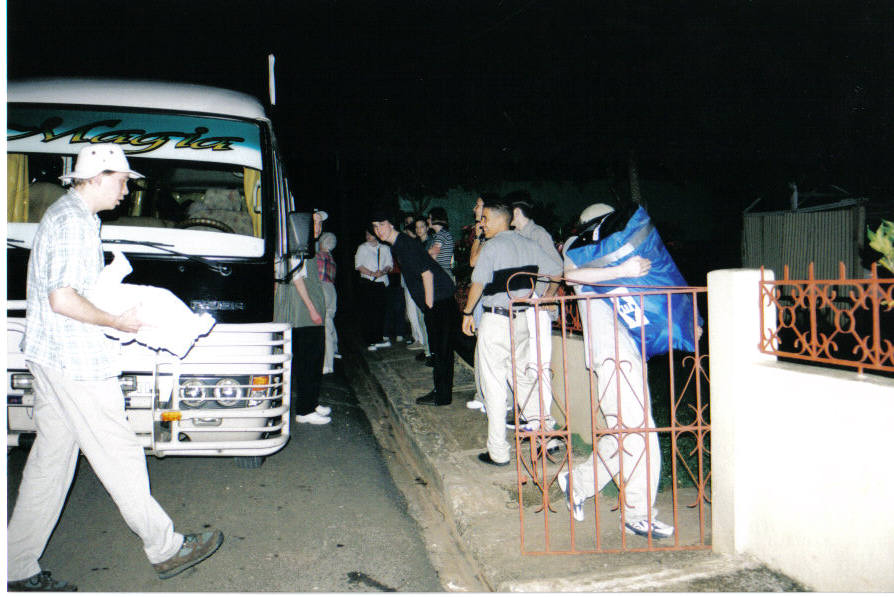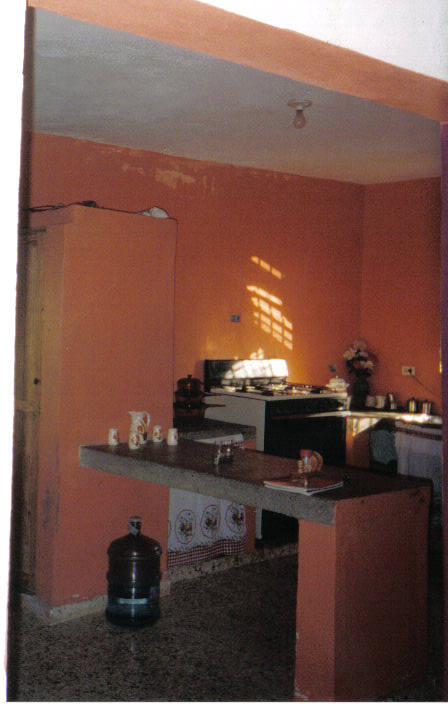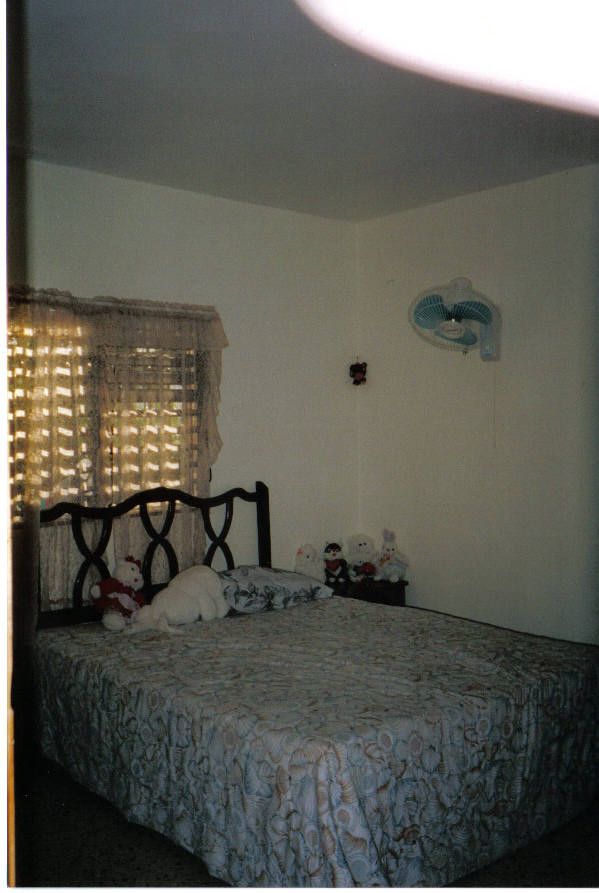(This post is part of a series that I am writing on my 1999 experience in Yamasa, Dominican Republic. I had gone there with a group of students to live with host families. While there, we visited schools, delivered care packages and saw wells that we had funded. It was an incredible, life-changing experience. The photos I’ve taken were done on Kodak film and disposable cameras.)
It was dark when we arrived at the house. The family was eager to meet us, however, and they had their entire family congregated outside. We had gone through Yamasa, dropping each of my school mates off at their respective host houses — the bus thinning out of both bodies and bags.

 My body felt nervous and incredible anxious. I had never before been away from my parents and I had never travelled abroad. Traveling to the Dominican Republic to spend weeks with a host family, one that spoke extremely limited English, was like putting a fish out of water and expecting it to thrive.
My body felt nervous and incredible anxious. I had never before been away from my parents and I had never travelled abroad. Traveling to the Dominican Republic to spend weeks with a host family, one that spoke extremely limited English, was like putting a fish out of water and expecting it to thrive.
Thankfully, the family was warm and welcome. They extended their home to us in a way that made me feel at ease. Within moments, we were sitting in their kitchen — surrounded by their entire family.
My school mate and I (they had paired us off so we weren’t staying alone with host families) had our pocket dictionaries and photo albums out, showing them where we came from. They were fascinated, particularly by the photos of winter.
After learning more about their life, they showed us our room and explained, in broken English, what the bug net was for and why we should use it nightly.
The house had wooden shutters on the windows but no glass or screens, which meant that anything outside could easily come in and, as we’d learn, it was a regular occurrence to see spiders, mice, lizards and roosters in the house.
I unpacked my things into the wooden dresser in our room and washed myself down with baby wipes. The house had no indoor plumbing, even though it had a bathroom, so “sponge baths” were in order to keep ourselves clean.
 As we were unpacking, a giant spider (about the size of the palm of my hand) ran into the room and skirted underneath the dresser. My roommate and I couldn’t get off the floor, onto the bed and underneath the bug net fast enough. Through terrified screams to our house mother, we flipped through the pages of our pocket dictionary to find the Spanish word for “spider.”
As we were unpacking, a giant spider (about the size of the palm of my hand) ran into the room and skirted underneath the dresser. My roommate and I couldn’t get off the floor, onto the bed and underneath the bug net fast enough. Through terrified screams to our house mother, we flipped through the pages of our pocket dictionary to find the Spanish word for “spider.”
Needless to say, night one was an adrenaline rush.
Over the next few nights, we learned to embrace the wildlife, the insects, the breeze that would come through the window and the bug net.
The first morning in our new home, our house mother prepped a local Dominican favourite: plantains.
She prepared them by cooking and mashing them and serving them in a bowl to us. I had never tried plantains up until that moment and by the time I actually woke up, got myself dressed and to the table, the previously hot plantains were now a cold mush.
Needless to say, I wasn’t a huge fan of them. However, I was raised to be polite so I guessed on a Spanish phrase and said, “Mas por favor!” thinking that I was commenting on how good the food was… turns out, that means, “More please”, so I got another serving of the plantains. I quickly learned how to say “Very good” shortly after that so that I didn’t make the same mistake twice.
Our adventure had just begun and I was in the throes of some serious culture shock. However, I knew in that moment that my heart was made to wander, explore and soak up all that life had to offer. I couldn’t wait for my future Dominican Republic experiences and to head home to book my next flight.
